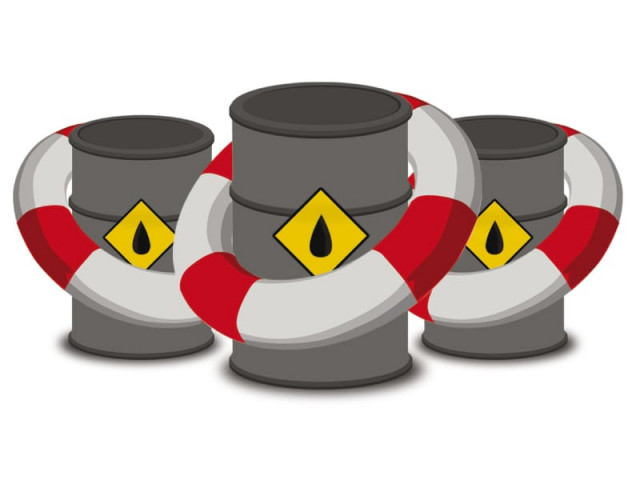US-Iran standoff: Global oil suppliers seek war risk insurance
Demand was prompted by Tehran’s threat to block main supply channel.

As tensions between Iran and the United States deepen, international oil suppliers have sought war risk insurance and ocean losses to protect their supplies passing through a key sea channel to Pakistan.
The demand for including war risk insurance and ocean losses in prices came after Iran threatened to block the Strait of Hormuz, one of the busiest shipping channels which is used by 40% of the world’s oil tankers.
“Incidentals allowed to refineries in ex-factory prices for petrol and high-speed diesel need to be reviewed to include war risk insurance and ocean losses,” Oil Companies Advisory Committee (OCAC) said in a letter sent to the Ministry of Petroleum and Natural Resources.
“This is a set standard that war risk insurance and ocean losses are allowed to be charged in incidentals by the refineries in the region where tensions grow,” an oil industry source said, adding the international oil suppliers were demanding to make war risk insurance and ocean losses part of incidentals to be allowed to the refineries. “However, the government has not yet taken any decision,” the source added.
According to a senior official of the petroleum ministry, the government had allowed these incidentals to be charged from consumers during the Kuwait war in early 90s. “Oil refineries had been charging the incidentals by 2000,” he said, adding now they were asking again due to flare-up of tensions in the region.
“It is to be noted that Pakistan State Oil (PSO) had also been stopped from including the same (incidentals) in its price calculations by Ogra in a price monitoring committee meeting held on December 15, 2011. It is further suggested that ocean losses/gain allowed to import-sharing OMCs (oil marketing companies) in incidentals on actual imports may also be allowed to refineries for their ex-refinery prices,” the OCAC said.
The committee further said several pending issues including outstanding price differential claim (PDC) payments, tax refunds, high incidence of turnover tax and above all razor-thin margins had substantial financial implications for the industry profits which had already shrunk to almost an untenable state and had brought the industry to the brink of financial crisis.
“In order to have a sustainable supply arrangement in place, it is imperative that actual landed cost be considered in the price so that the end-price is reflective of the actual cost of the product. Any price differential should be part of the price based on quarterly review of variance between actual landed cost versus cost of supply,” the OCAC suggested.
Published in The Express Tribune, May 15th, 2012.



















COMMENTS
Comments are moderated and generally will be posted if they are on-topic and not abusive.
For more information, please see our Comments FAQ